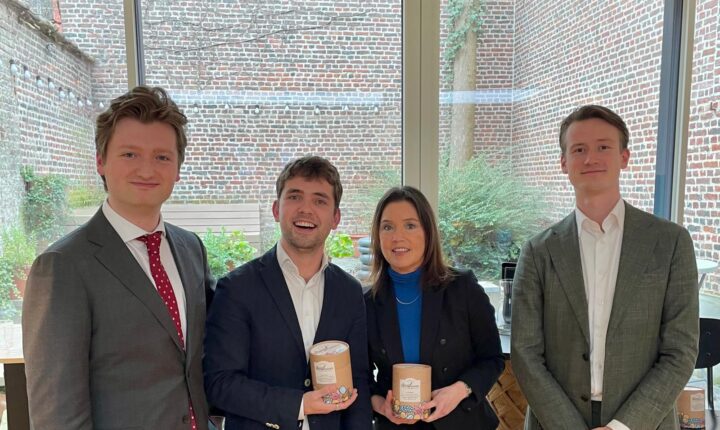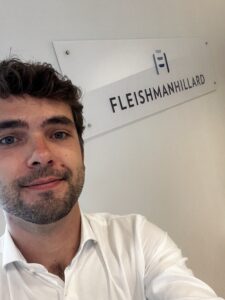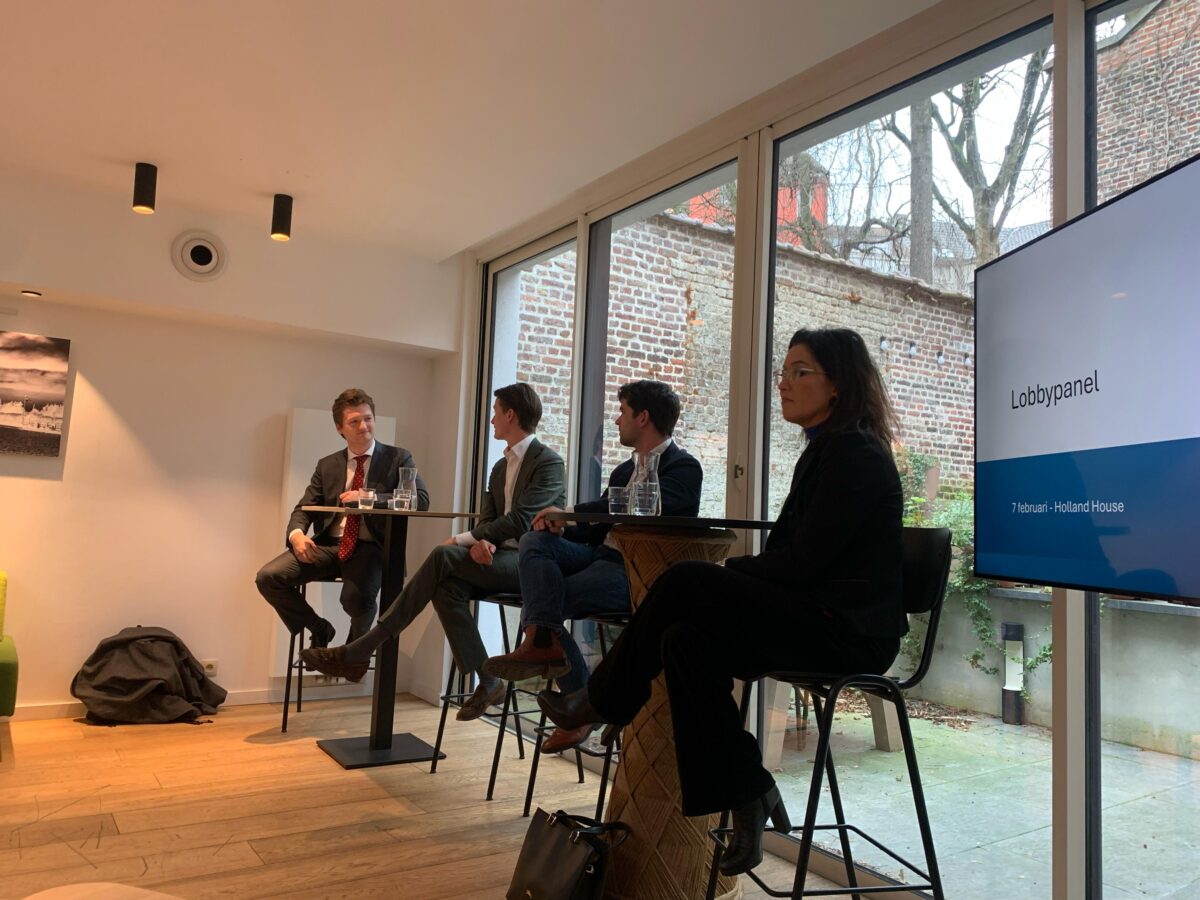In the spotlight – A week in Brussels
April 17, 2025

Ever wondered what it’s like to juggle a dynamic career in both the political and consulting arenas? Meet Teeuwes Middelbrink, Public Affairs consultant at OPRG. With a workweek that is anything but ordinary. From navigating the corridors of Dutch Parliament to engaging in high-stakes discussions on renewable energy policies in Brussels, Teeuwes’s schedule is a whirlwind of diverse and exciting challenges.
Join us as we dive into a typical week in Brussels, where no two days are the same, and every moment is an opportunity to make a difference.
Teeuwes connects the Omnicom PR Team in our Amstelveen and Hague office to the latest news in Brussels. He works closely with our team in the Netherlands and the team often meet both in the Netherlands and Brussels for engagements, meetings, conferences and networking.
Can you describe a typical workweek for you?
No two weeks are ever the same. This is both due to the fact I work for a variety of clients as a consultant and my work in the political arena.
The one week I could be spending the majority of my hours strategizing and talking about the challenges in the tourism industry while the next week could be dedicated to renewable energy policy discussions. Companies in various sectors also differ internally and as a consultant I can advise them with my political expertise while also learning about their business.
Working in politics brings both order and chaos into my week. Dutch Parliament and the European institutions have a certain agenda which we have to take into account in our work. For example in The Hague, Parliament only convenes from Tuesday to Thursday with many debates happening during this time. This leaves Monday and Friday as the best days to invite a Member of Parliament to visit the operations of one of our clients.
On the other hand politics is heavily influenced by news and current events around the world. Even more so in today’s world with social media where politicians are almost expected to have an opinion about everything. My daily – and even my weekly – schedule can dramatically change if there is a major development in the areas I work in.
Conclusion: if you want a career that is dynamic and fun, this is it!

What are the main public affairs issues you focus on?
In the Netherlands we have a multi-disciplinary team dealing with issues across the spectrum. We work for energy intensive clients, transport but also large international investors for example.
In Brussels I’m part of the Energy, Climate and Transport team. In this team most of my time is dedicated to clients in the electricity and transport sector.
How do you stay updated on the latest developments in public affairs?
For everyday developments media outlets are a primary source of information, every morning I scan the newspapers and social media for updates. Whether it is global news that politicians are going to react to – or coverage of political debates and developments. We of course also get a lot of information from watching and attending political debates ourselves.
For developments in our sector and in our work in the Netherlands we are part of the Beroepsvereniging voor Public Affairs Professionals (BVPA). A professional association with the goal of bringing together PA professionals and developing our profession further through knowledge sharing and education.
What are some of the key challenges you face in your role?
Companies can operate most effectively if preconditions like regulation and legislation are effective and predictable. Especially for example when doing long term investments this predictability from government is crucial. However the current political situation in the Netherlands, Brussels and the world is everything except predictable. The idea of how policy should be made can change based on what combination of parties are in power at a given time. As a result, policies sometimes change every few years.
Guiding companies successfully through this political volatility is the biggest challenge but also the part which makes this job so versatile and interesting. No two days are the same!
How do you engage with stakeholders and policymakers in Belgium/Brussels?
In Brussels lobbying and interest representation is more engrained in the political process itself. Which is not surprising giving the huge interests European policy deals with. Engaging with stakeholders and policymakers thus happens a bit more directly and more frequently.
One example of this are the plethora of events scheduled throughout the year in Brussels, organized by various stakeholders. Here, politicians, legislators, industry professionals, NGO’s and media get together, discuss and network with each other.
What strategies do you use to influence public policy?
Most of the time, the bigger the interests you represent, the better and more credible your story is. One of the main strategies you see in influencing public policy is getting interest in your camp – for example by forming alliances.
The best ones are the most unexpected ones. Where seemingly disagreeing stakeholders turn out to have a common goal which is represented in your lobby.
How do you balance your work between local and international public affairs?
I love sitting in trains!
To be honest, this is getting less and less difficult. Dutch politics and policy is becoming more and more intertwined with European policy and European policy is always influenced by geo-political developments. You almost can’t work in Dutch politics anymore without understanding The European mechanisms. My work for international politics more often enables me to do my local work better. It is a little bit more work to keep up to date with every new development when working in different geographical arena’s.
What skills do you think are essential for success in public affairs?
In the Netherlands lobbying is more focused on the relationship where lobbying Brussels is more technical. But for both you need to have a certain interest for the technical details of the legislation your working with and you need a healthy dose of social skills. There’s a lot of talking involved.

How do you see the field of public affairs evolving in the next few years?
Undeniably the developments in AI are going to have a big influence. Gathering, reading and analyzing big chunks of information are crucial in this job. Machine learning models are already assisting us in this regards. Although, the human part of Public Affairs will remain one of building relationships – which I don’t see going anywhere soon.
Another big evolvement I see happening is the decrease of power of the ‘traditional administrative’ political parties. We see new parties entering the arena and gaining power fast – these parties sometimes do politics differently. For example, very transparent and in consultation with stakeholders – or very closed off and not easily reachable. This greatly influences our work.